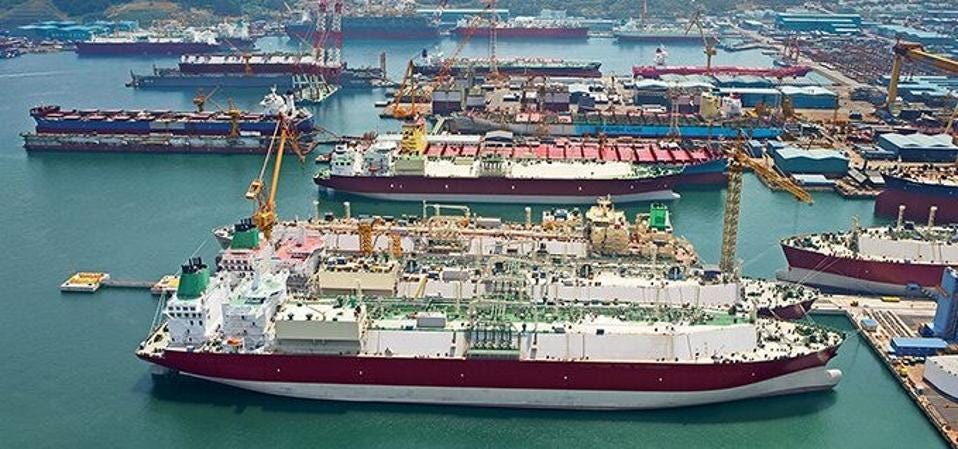ExxonMobil Floating Storage and Regassification Vessels EXXONMOBIL
[Note: This story is also published at Forbes.com]
Speaking to the BBC in London on Monday, U.S. climate envoy John Kerry lashed out at major oil companies that continue to increase capital investments in exploration and development of oil and natural gas resources to meet rising global demand. Kerry was responding to a question about remarks by Shell CEO Wael Sawan last week that such investments are needed, and that mandates to cut oil and gas before proven scalable and affordable alternatives are available would be “dangerous and irresponsible.”
Kerry disagrees, accusing Shell of backtracking from prior commitments to cut its equity oil production, and calling that shift “unnecessary.” He then added, "What we need are company chief executives, looking to the future and investing in that future and accelerating the transition to that future.” But neither Kerry nor any other U.S. official has the power to pick chief executives for the private sector, and companies will make those decisions based on the realities at hand.
Besides, major oil and gas companies have always been capable of walking and chewing gum at the same time, and Shell is certainly doing that, making big, ongoing investments in renewable energy and other “green” projects even as it raises spending on its core business of oil and gas. It is also more than fair to point out that Kerry’s remarks came less than a year after major oil companies in the U.S. were slammed by President Joe Biden and some of his appointees for not investing enough in drilling for more oil and gas during last year’s summer gasoline price spikes.
It’s the kind of mixed messaging the President and his appointees seem to specialize in delivering.
A Key To Addressing Energy Poverty
I was able to catch up with ExxonMobil senior VP and head of the company’s global LNG business Peter Clarke shortly after Kerry’s comments were published. In that context, I asked why his company continues to allocate rising capital investments to that and other pieces of its core oil and gas business even as it ramps up its own investments in carbon capture, hydrogen hubs and other alternative ventures.
Keep reading with a 7-day free trial
Subscribe to Energy Transition Absurdities to keep reading this post and get 7 days of free access to the full post archives.




